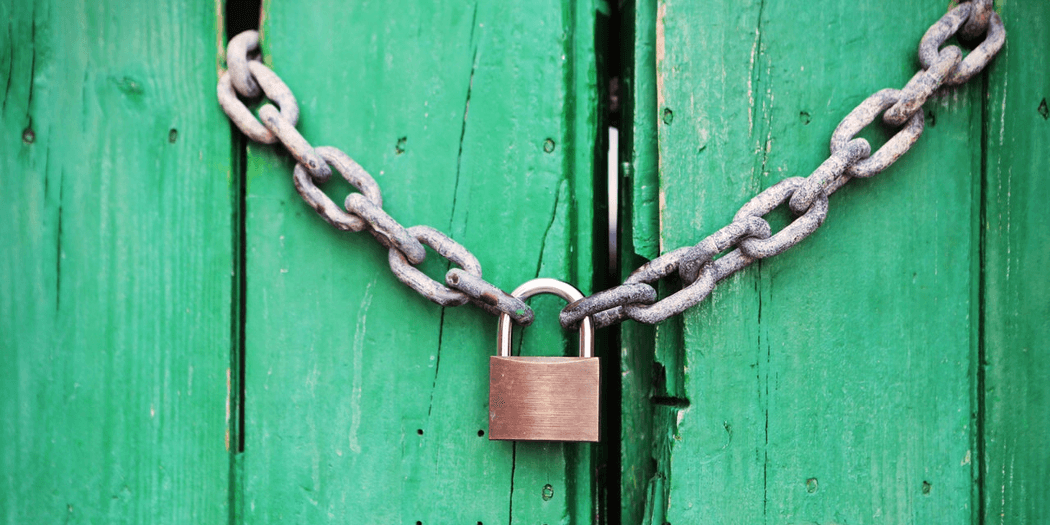What Are the Types of SSL Certificates and Which Should You Choose?
An SSL (Secure Sockets Layer) certificate is an important part of keeping your website secure. They authenticate your website’s identity and enable an encrypted connection to keep you and your visitors safe. There are several types of SSL certificates, so choosing the right one to protect yourself can be confusing. Let’s look at the SSL certificate types, how different validation levels work, and which you should choose.

The Different Types of SSL Certificates
What is an SSL certificate? SSLs are digital certificates that validate your website is authentic and encrypt data transferred between the user’s browser and the server.
They are essential for protecting sensitive information, such as credit card details and personal data, from being intercepted by malicious actors.
However, with several validation levels available, picking the right type of SSL certificate for your website can be tricky. Here are the different types of certificates available, how each one works, and which you should choose when protecting your website.
Domain Validated (DV) Certificates
Domain Validated (DV) certificates are the most basic and cost-effective SSL type.
DV certificates are extremely easy to get, and verifying your domain ownership usually takes only minutes. The Certificate Authority (CA) either validates you own the domain through email or by looking up the Domain Name System (DNS) record for your site.
The primary advantage of domain validation is that it’s quick and simple. In most cases, you can often obtain a DV cert in minutes. It’s also the cheapest kind of SSL certificate you can buy, with some even available for free.
Once validated, DV certificates provide encryption for a basic level of security. They display a padlock icon in the browser’s address bar so users know the website is safe. While users know their information is encrypted, they can’t really verify who you are.
For that reason, DV certs off the lowest level of SSL trust. However, this shouldn’t be a problem as long as your site doesn’t handle sensitive information. Domain Validated certificates are best for small websites, blogs, or personal projects where user data sensitivity is low.
Organization Validated (OV) Certificates
Organization Validated (OV) SSL certificates require a more thorough validation process. In addition to domain ownership, the CA verifies the legitimacy of the organization behind the website. This process may include providing business documents and a phone call verification.
While they take longer to get, the added validation offers better protection for users. Since your organization’s information appears on the certificate, they provide greater trust than DV certificates.
Visitors are more likely to trust you since they can easily find information about your business or organization.
For this reason, an OV certification is strongly recommended for any site that collects sensitive user information like address, phone number, and, especially, credit card or payment information. They are best for small to medium-sized businesses or eCommerce websites.
Extended Validation (EV) Certificates
Extended Validation (EV) SSL certificates provide the highest level of security and trust.
The CA conducts a rigorous vetting process, looking for proof of the organization’s existence, legal status, identity, ownership of the site’s domain name, and more. EV approval can take a few days to several weeks, depending on the circumstances.
The organization’s name is prominently displayed in the address bar of most modern browsers, often highlighted in green, which significantly increases user trust.
EV certificates are best for large businesses, financial institutions, eCommerce sites, or any website that handles sensitive user data, such as payment information.
Wildcard Certificates
Wildcard certificates are type of unlimited SSL that allow you to secure both the primary domain and all subdomains with a single certificate. For example, a wildcard certificate for “*.yoursite.com” will secure “www.yoursite.com,” “blog.yoursite.com”, and any other subdomains.
Wildcard certs are available as DV, OV, and EV SSL certificates to meet virtually any need. They are a cost-effective solution that simplifies SSL management for large sites with many subdomains.
Wildcard SSL certificates are best for businesses that use multiple subdomains.
Multi-Domain (SAN) SSL Certificates
Multi-Domain SSL certificates, also known as Subject Alternative Name (SAN) certificates, allow you to secure multiple domains and subdomains with a single certificate.
This flexibility is ideal for businesses with multiple websites or services under different domains. For example, SAN certificates protect “yoursite.com,” yoursite.net”, and “yoursite.org.”
Available as DV, OV, and EV SSL certificates, Multi-Domain certificates are cost-effective solutions that simplify SSL management for large businesses. SAN certificates are best for large businesses that have multiple websites and domains.
What Is the Difference Between Different SSL Certs?
All SSL certificates encrypt data with the intent of keeping users safe. Any information transmitted between the user’s web browser and the server uses 256-bit encryption to prevent anyone else from gaining access to it.
The real difference is the level of validation required to obtain the certificate. OV and EV certificates take more rigorous verification than DV certs.
You might see the additional verification steps as unnecessary from a business perspective. However, it’s important to look at it from your user’s perspective.
SSL certificates build trust with your customers. A DV cert only validates that you own your domain name and doesn’t include specifics about your business. On the other hand, EV certificates include your company name on the certificate and in the browser’s address bar.
This added verification and trust can make users more confident when buying goods and services from your site.
How To Choose the Right Type of SSL Cert for Your Needs
The type of SSL certificate for your business or organization largely depends on the sensitive information your website collects, the level of validation and trust you need, and the number of domains or subdomains you want to secure. Here are the factors you need to consider to make the right choice:
1. What Is the Purpose of Your Website?
One of the biggest factors in choosing the right type of SSL cert is the purpose of your website.
A Domain Validated (DV) SSL certificate is usually sufficient for information sites and personal blogs since they rarely transmit sensitive information. DV certificates are cost-effective and provide basic encryption, which is adequate for non-commercial websites.
If you run a business or eCommerce site that handles financial transactions or sensitive user data, you should consider at least an Organization Validated (OV) certificate, if not an Extended Validation (EV) SSL cert. These certificates provide higher levels of validation and trust, which can help reassure your customers that your site is secure.
Large eCommerce sites, financial institutions, and any site that needs high security should only consider an EV certification. The rigorous validation process and the visual indicators (like the green address bar) provide maximum assurance to users.
2. Do You Have Multiple Domains or Subdomains?
Another factor to consider is the number of domains or subdomains you use. A domain is effectively the URL of your website, “yoursite.com,” for example. A subdomain is a prefix added to the domain. An example is “blog.yoursite.com.”
You should consider Wildcard or Multi-Domain (SAN) SSL certificates if you have multiple domains or subdomains.
If you only use a single domain, such as “www.yoursite.com,” you can use a standard DV, OV, or EV certificate.
For multiple subdomains, like “blog.yoursite.com,” “sales.yoursite.com,” or “shop.yoursite.com,” you need a Wildcard cert. Available in DV, OV, and EV levels, the Wildcard certification protects and encrypts unlimited subdomains.
On the other hand, if you have multiple domains, like “yoursite.com” and “yoursite.net,” you need a Multi-Domain (SAN) SSL certificate. This simplifies SSL management and protects all of your different websites.
Unfortunately, if you have multiple domains that also use multiple subdomains, you will need separate certificates for each site.
How Much Trust Do You Need With Your Users?
Although they provide security, SSL certificates are really a sign of trust with your users. SSLs also play an important role in search engine optimization (SEO), with many search sites reviewing your SSL cert type to make sure your site is legitimate.
At the bare minimum, we recommend a DV cert for all websites, even if you do not collect any personal or sensitive information. This includes personal and hobby websites, blog sites, and any brochure-style business website that only provides information about your company.
Any site that includes a signup feature, collects sensitive information, or sells goods should have, at the minimum, an OV SSL certificate.
We recommend OVs for small eCommerce stores, membership sites, or any website that generates monthly recurring revenue. This also includes businesses or organizations that need to confirm their identity to prevent other organizations from attempting to fake or spoof your site.
An EV SSL certificate is the best choice for maximum trust and assurance. The visual cues, such as the green address bar and the display of the organization’s name, provide users with the highest level of confidence in your site’s legitimacy.
We recommend EV type SSLs for eCommerce sites, national companies, and any site that stores or transmits sensitive personal information.
What About Budget When Choosing an SSL?
Most resources say that you should consider your budget when choosing the type of SSL you need. Most businesses and organizations have finite budgets, so this may seem reasonable.
But the security of your users and your website is not really a place we recommend trying to save money. While OV and EV SSL types are more expensive than DV certs, they are an important trust factor with users and customers.
While prices vary by SSL type and Certificate Authority, even businesses that need the highest EV level certificates will spend less than $2,500 a year.
Improve your security and trust today with the right SSL certificate. No matter what kind of website you operate, you should always protect your users and website with an SSL certificate.
A2 Hosting offers a free DV type SSL cert with all hosting packages, and you can upgrade to Organization Validated, Extended Validation, Wildcard, or Multi-Domain SSL certificates at any time.
Existing customers can upgrade their SSL certificate type through your MyA2 dashboard. When checking out, new customers can add affordable and secure OV, EV, Wildcard, or SAN SSL certificates to any plan.
Plus, A2 Hosting offers no-hassle SSL installation when you purchase your certificate through us. Simpley add it to your plan and our 24/7/365 Guru Crew will set it up for you. Get started with SSL today from A2 Hosting.
Hero Photo by Life Of Pix / Pexels




